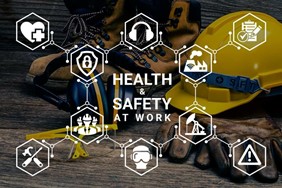
Legal Imperatives
The OHSA places the onus on employers to create and maintain a working environment that is safe and without risk to the health of their employees. This includes conducting regular risk assessments, providing adequate training and information, and ensuring that all equipment and processes comply with safety standards. Failure to comply with these requirements can result in severe penalties, including hefty fines and imprisonment for company directors.
In addition to the OHSA, the Compensation for Occupational Injuries and Diseases Act (COIDA) provides for compensation of employees who are injured or contract diseases in the course of their employment. Non-compliance can lead to the rejection of claims, further complicating the legal standing of a company and potentially leading to lawsuits from affected employees.
Economic Considerations
The economic impact of not implementing a health and safety program is substantial. Workplace accidents and illnesses result in lost working hours, decreased productivity, and increased medical costs. According to a report by the International Labour Organization, occupational accidents and diseases cause an annual loss of 4% of the global GDP. In South Africa, this translates to billions of rands in lost economic output.
Companies with poor safety records also face increased insurance premiums and potential difficulties in securing contracts, as many clients and partners insist on stringent health and safety standards. Moreover, the reputational damage from a serious accident can be irreparable, leading to a loss of customer trust and a decline in business.
Moral Responsibility
Beyond the legal and economic aspects, there is an undeniable moral duty to protect the well-being of employees. Every worker has the right to return home safely at the end of each day. Implementing a health and safety program demonstrates a company’s commitment to its workforce, fostering a culture of care and responsibility.
A safe work environment boosts employee morale and loyalty, reducing turnover and attracting top talent. It also promotes a positive workplace culture, where employees feel valued and protected. This not only enhances productivity but also creates a harmonious working environment conducive to innovation and growth.
Risks of Non-Implementation
The risks associated with not implementing a health and safety program are manifold and severe. Immediate risks include workplace accidents that can cause injuries or fatalities, leading to human tragedy and significant legal repercussions. The long-term risks are equally daunting: chronic illnesses caused by unsafe working conditions can result in lifelong suffering for employees and ongoing financial liability for employers.
Furthermore, non-compliance can lead to frequent inspections and sanctions by regulatory bodies, disrupting business operations and damaging corporate reputation. In an increasingly globalized market, companies failing to adhere to health and safety standards may find themselves at a competitive disadvantage, as international partners and clients often require proof of compliance.
Conclusion
The need for a robust health and safety program in South African companies is clear. It is not merely a legal obligation but a fundamental component of responsible business practice. By ensuring the safety and well-being of employees, companies safeguard their most valuable asset – their people. The risks of not implementing such a program far outweigh the costs involved. It is time for all South African businesses to prioritize health and safety, fostering a culture that values human life above all else.
Skills College has quite a few items on the menu to assist you to mitigate the risks and optimise the benefits – feel free to reach out if you would like some information.
